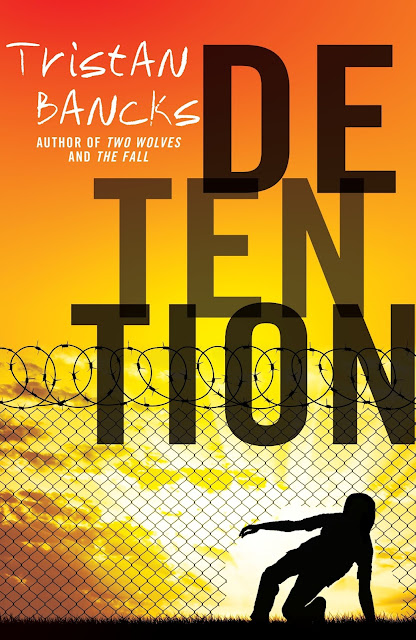Getting Serious About Humour
I love humour. I love laughing at myself almost as much as I love laughing at others (if only because it seems less rude to do so) I also love writing with humour. But what are the critical elements which cause us to chuckle, which render us unable to suppress a snort or too, which leave us aching in the belly with laughter? What constitutes humour? And how do we find it for the stories we write?
At the recent CYA Conference in Brisbane, talented YA author and all round funny guy, Michael Gerard Bauer led us through an amusing little seminar exploring the ways in which to make people laugh.
There are basically two ways:
- Visual Humour - as with using your face to get a baby to smile
- With your Words - as writers, we do not have the visual back up that a stand up comic might use, therefore we need to use our words to deliver the punch(line). So...
* What is the common ingredient in humour?
- The Unexpected = Surprises. That is the punchline of a joke, the Boo that makes the baby laugh.
- The Extraordinary - told in an Unexpected way.
* Where do you find humour?
- Everywhere is the holistic answer.
- Comedy is often found in Tragedy
- In real life events
- From the mouth of babes (or children in general)
Peter Ustinov stated: Comedy is a funny way of being serious.
Indeed humour can be the shock absorber of life. At this point of the session, Michael invited audience members to recall and share a tragic / comic moment in their life.
For me this occurred about a decade ago. My husband had just been wheeled into ICU in Townsville General Hospital after a mammoth craniotomy. I was invited to join the crammed circle of nurses, doctors, and specialists around his bed to encourage his recovery. As they juggled clipboards, performed neurological obs, and adjusted various tubes leading in and out of my husband, I struggled to maintain a non wobbly lip and brave face. Five hours of waiting had all but frayed every nerve ending beyond repair, or so it felt. We all wondered at the possible outcomes this sort of operation could result in; brain damage, impairment of some kind.
He lay propped up on a meringue mountain of pillows. His head was heavily bandaged with most of his remaining hair sprouting from the top, and his eyes were bruised puffy slits. He looked like a pavlova gone horribly wrong. I couldn't speak a word. The bedside crowd of professionals muttered encouragingly, "Come on mate. Wake up. Your wife is here."
A puffy eye split open. In a groggy but voluble voice, my husband exclaimed, "That's not my wife. I married a blonde."
(see my profile pic for clarification)
Clip boards were dropped, sharp intakes of breath were heard, looks of alarm flooded the faces of the bedside crowd. I laughed out loud. And quickly reassured the professionals. At least they hadn't damaged his sense of humour.
For me, being able to find the humour in tough times like those, was a way of not only coping with them but sharing bleak and not always good news with others in a non threatening, hopeful way.
'When you can laugh at something supposedly larger and more overwhelming than yourself, then you cannot and will not be over come by it.'
* What makes something funny?
- Surprise (as long as it's pleasant and non threatening.
- Unexpected events (which must involve some incongruity or contrast)
 |
| Michael waving his Ringo around in a surprising, unexpected and exaggerated way. Read his Ishmael series for full peg explanation. |
* How do you inject a dose of humour into your writing?
- Use Exaggeration. Create surprising situations in your storyline in outlandish, over the top ways.
- Base the incident on real life happenings. Truth is often stranger than fiction and often funnier too.
- Create Characters with surprising, unusual and exaggerated qualities.Readers need to be able to sympathise with characters in humour. Therefore characters need a distinct and surprising way of looking at the world.
- Have characters contrast and clash with other characters or world at large to allow the readers to emphasis.
- Use secondary characters to expand on comedy.
- Deliberately set up your audience. Then sabotage their expectation with Surprise. Give readers something entirely different from that which they think they are reading towards. Don't forget, you can manipulate the audience.
- Using surprising language; words, images, similes, metaphors.
Michael's Top Tip for infusing Humour into your writing
* Use the Extraordinary in Unexpected, Surprising and Exaggerated ways.
For me, life is naturally humourous. I like to look on the bright side, because it often makes me laugh or at least feel better about the dull bits. Funny doesn't always coincide with good, but funny is good. Try adding it to your writing and brighten someones day.
Nothing to do with craniotomies but something to a have giggle at.



Comments
Fabulous Blog on humor.
I really enjoyed Michael's presentation at CYA too.
I'm incorporating more humor into my Kids Sci-Fi novel, so I found this very helpful as a reminder
I find it very hard to write anything without humour. It's great to have something to giggle at right after a stressful scene, that can serve as a release for the reader.
You've put some great tips and info up here Dimity - well done!